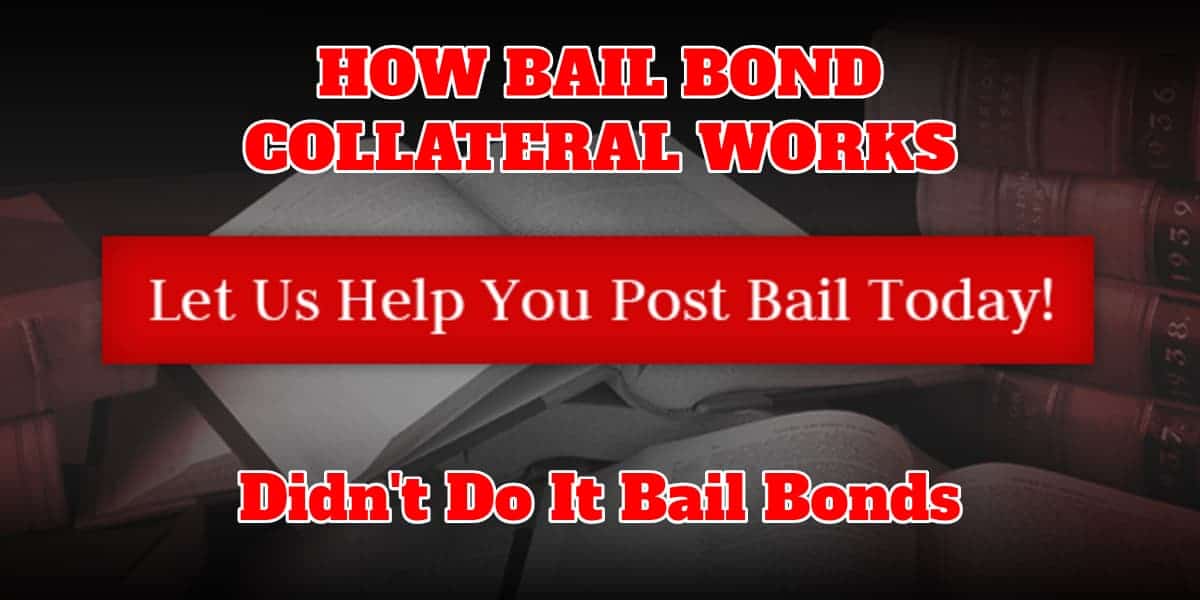How Bail Bond Collateral Works
Collateral is an important part of the bail bond process. When a defendant posts bail, they are typically required to provide some form of collateral to ensure that they will appear in court when required. This can be anything of value, from cash to property.

Key Takeaways:
- Collateral is an important part of the bail bond process, and it can come in the form of cash, property, or assets.
- By providing collateral, you are essentially agreeing to repay the bail bond agent if you fail to appear for your court date or if you flee before your trial.
- It is important to weigh all of your options before agreeing to put up collateral for a bail bond.
What Is Bail Collateral?
Collateral is an important concept in the world of finance. Essentially, it is anything of value that can be used to back up a loan or financial agreement. This can be something as simple as stocks and bonds or something more substantial like property.
One way that Didn't Do It Bail Bonds can help people provide collateral for their bail is by working with family and friends. We understand that this can be difficult, but we are committed to helping our clients get out of jail as quickly as possible. We also accept a variety of collateral options, including real estate, vehicles, and jewelry. If you are unable to provide collateral, we may be able to work with you to create a payment plan. Please contact us today to learn more about our services.
In the case of bail bonds, collateral is typically something of significant value like a house or car. The idea behind using collateral to secure a bail bond is that if the defendant fails to appear for their court date, the bail bond agent can use the collateral to cover the cost of the bond.
This helps to protect the agent from loss in the event that the defendant does not appear as required. Collateral can be a valuable tool in financial transactions, and its use should be carefully considered before any agreement is made.
How Does Collateral Work With Bail Bonds?
Bail bond agents are typically used when an individual is accused of a crime and needs to post bail in order to be released from jail pending their trial. Bail is set by a judge and is usually based on the severity of the crime, the risk of the accused fleeing, and the likelihood that they will appear for their court date.
If you are unable to pay the full amount of the bail bond upfront, the bail bond agent may ask you to provide collateral in order to secure the bond. This collateral could be in the form of property such as a house or car, and the agent will place a lien on the property until such time as the bail bond is paid off. In some cases, the bail bond agent may also ask for additional collateral in the form of cash or jewelry.
This is often referred to as a "signing over" of assets and means that you are signing over ownership of these assets to the bail bond agent until such time as the debt is repaid. By providing collateral, you are essentially agreeing to repay the bail bond agent if you fail to appear for your court date or if you flee before your trial.
If you are unable to repay the debt, the bail bond agent will be able to foreclose on your property or sell your assets in order to recoup their losses. As such, it is important to weigh all of your options before agreeing to put up collateral for a bail bond.
The Bottom Line:
As you can see, collateral plays an important role in securing a bail bond. If you are unable to pay the full amount of the bond upfront, talk to your local bail bondsman about what options are available to you in terms of providing collateral. In most cases, they will be more than happy to work with you to find a solution that fits your needs and budget.
My name is Darrel Luth and I am the proud owner of Didn't Do It Bail Bonds. I am a retired Marine and served my Country proudly. I have been in the bail bond business for over 6 years and am one of the most successful bail bondsmen in Arizona. I attribute my success to hard work, integrity, and treating my clients with respect.